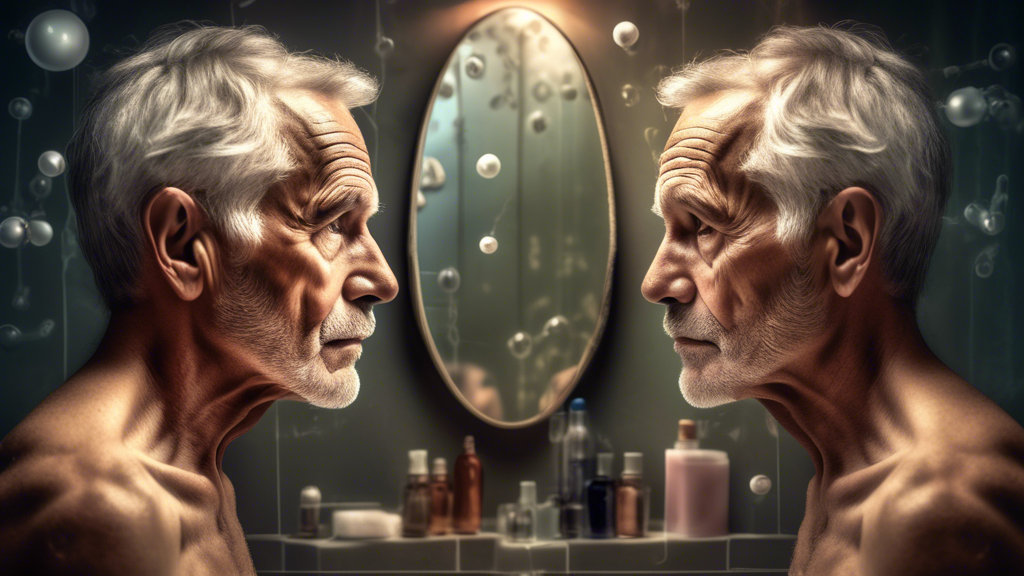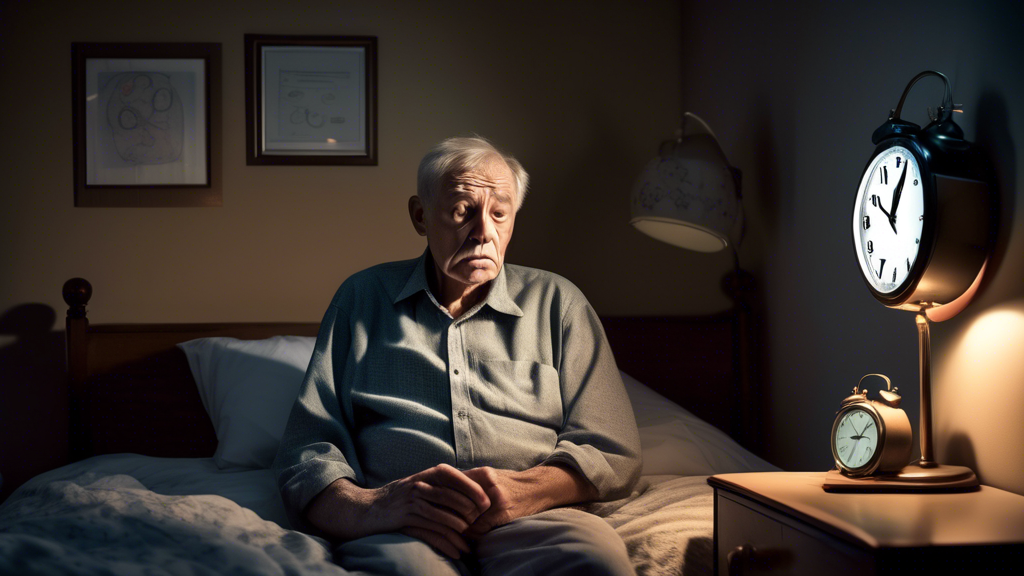Sleep Disorders and Aging: What Every Man Should Be Aware Of
As men age, they often face a variety of health challenges, with sleep disorders being a significant concern. Sleep disorders can profoundly influence the quality of life and overall health. Understanding these disorders’ prevalence and impact within the aging male population is crucial. Research indicates that older men are more prone to sleep disorders such as insomnia and sleep apnea, which can disrupt their sleep patterns and diminish sleep quality. Aging can inevitably alter sleep architecture, making it difficult to achieve restorative sleep. There are numerous causes and risk factors that contribute to this issue, including biological changes, hormonal shifts, and chronic health conditions like heart disease and diabetes. Additionally, lifestyle factors such as diet, physical inactivity, and the consumption of caffeine or alcohol can exacerbate sleep problems. Addressing sleep disorders in aging men requires targeted strategies, combining medical treatments with behavioral approaches and lifestyle modifications. Medication options and CPAP therapy are effective for conditions like sleep apnea, while Cognitive Behavioral Therapy for Insomnia (CBT-I) and proper sleep hygiene can help manage insomnia. Making lifestyle changes, such as engaging in regular exercise, maintaining a healthy diet, and adopting stress management practices, also plays a critical role in improving sleep health. This comprehensive approach ensures that aging men can enjoy better sleep and, consequently, better health and well-being.
Understanding Sleep Disorders in Aging Men
As men age, the prevalence of sleep disorders notably increases, impacting their overall quality of life and health. Studies show that sleep disorders affect approximately 50% of older adults, with older men being particularly vulnerable. This rising prevalence is attributed to a combination of physiological changes and the aging process itself.
The Prevalence of Sleep Disorders in Older Men
Sleep disorders are significantly more common among older men compared to younger individuals. The National Institute on Aging has documented that men over the age of 60 often experience difficulties in maintaining restorative sleep. This trend highlights the need for increased awareness and understanding of the sleep challenges faced by aging men.
Common Types of Sleep Disorders Affecting Aging Men
Several types of sleep disorders frequently affect aging men, each with unique characteristics and implications:
- Insomnia: Characterized by difficulty falling asleep, staying asleep, or waking up too early. Insomnia can be transient, acute, or chronic, significantly affecting an individual’s daily functioning and health.
- Sleep Apnea: A serious condition where breathing repeatedly stops and starts during sleep. Sleep apnea is particularly prevalent among older men and can lead to severe health problems, including cardiovascular issues and daytime fatigue.
- Restless Legs Syndrome (RLS): This disorder involves an uncontrollable urge to move the legs, typically due to uncomfortable sensations that are worse during periods of rest or inactivity. RLS can disrupt sleep and lead to chronic sleep deprivation.
- Periodic Limb Movement Disorder (PLMD): Similar to RLS, PLMD involves repetitive limb movements during sleep, often leading to frequent awakenings and disrupted sleep cycles.
- REM Sleep Behavior Disorder (RBD): This condition involves acting out vivid, often unpleasant dreams during the REM stage of sleep. It can result in physical injuries both to the individual and their bed partner.
How Aging Impacts Sleep Patterns and Quality
The process of aging brings about several changes that can adversely affect sleep patterns and quality:
- Changes in Sleep Architecture: Aging can alter the structure and stages of sleep, leading to a reduction in deeper sleep stages, such as slow-wave sleep and REM sleep. This decrease in restorative sleep stages can result in lighter, more fragmented sleep.
- Increased Sleep Latency: Older men often experience increased sleep latency, meaning it takes them longer to fall asleep. This delay can be attributed to several factors, including reduced melatonin production and changes in circadian rhythms.
- Early Awakenings: It’s common for older adults to wake up earlier than desired, reducing their total sleep duration. This can be linked to changes in the body’s internal clock and hormone levels.
- Reduced Sleep Efficiency: Sleep efficiency, the proportion of time spent asleep versus time spent in bed, tends to decline with age. This reduction is due to frequent awakenings and shorter sleep cycles.
- Environmental Sensitivity: Aging often results in heightened sensitivity to environmental factors, such as noise and light, which can disrupt sleep. Additionally, increased nighttime urination (nocturia) is common among older men and contributes to disturbed sleep.
Understanding these age-related changes is crucial for identifying and addressing sleep disorders in older men. By recognizing the prevalence and types of sleep disorders that commonly affect this population, as well as how aging influences sleep patterns and quality, we can better support aging men in achieving restful and restorative sleep.

The role of biological changes and hormonal shifts
As men age, their bodies undergo a variety of biological changes that can significantly impact sleep quality. Hormonal shifts, such as decreases in testosterone and melatonin levels, are particularly influential. Testosterone, which plays a vital role in men’s health, naturally declines with age. This reduction can lead to symptoms such as fatigue and reduced sleep efficiency, contributing to overall poorer sleep quality. Melatonin, a hormone that regulates sleep-wake cycles, also decreases with age. Lower melatonin levels may lead to increased difficulty falling and staying asleep, as well as more fragmented sleep throughout the night.
Additionally, changes in the circadian rhythm, which governs our internal body clock, are typical with advancing age. These shifts can result in earlier bedtimes and wake-up times, making it challenging for older men to get the restorative sleep they need. Some men may also experience a condition known as advanced sleep phase syndrome, where their internal clock shifts forward, causing them to feel sleepy in the early evening and wake up very early in the morning.
The impact of chronic health conditions
Chronic health conditions are common among aging men and can significantly affect sleep quality and patterns. Heart disease, diabetes, and arthritis are prevalent conditions that not only have their own symptoms but also influence sleep. For instance, heart disease can cause breathing difficulties and chest pain, conditions like sleep apnea can be exacerbated, leading to disrupted sleep.
Diabetes can disrupt sleep through nocturia (frequent urination during the night) and other complications such as neuropathy, causing pain and discomfort that disturb sleep. Both conditions have a bidirectional relationship with sleep disorders; inadequate sleep can worsen these health issues, creating a vicious cycle.
Arthritis and other chronic pain conditions also pose significant challenges to maintaining healthy sleep patterns. Pain and discomfort can make it difficult to fall asleep and stay asleep, reducing overall sleep quality. Additionally, medications used to treat chronic conditions may have side effects that negatively impact sleep, such as diuretics for heart disease and some pain medications.
Lifestyle factors contributing to sleep disorders
Certain lifestyle choices can exacerbate the risk of developing sleep disorders in aging men. Diet, physical activity levels, and substance consumption such as caffeine and alcohol play crucial roles in determining sleep quality.
Diet, for instance, can have a substantial impact on sleep. A balanced diet rich in leafy greens, lean proteins, and whole grains promotes better sleep. Conversely, a diet high in sugars and unhealthy fats can lead to weight gain, increasing the risk of sleep apnea and other sleep disorders. Additionally, irregular eating patterns and heavy meals late in the evening can cause indigestion, making it harder to fall asleep.
Physical activity is another critical lifestyle factor. Regular exercise promotes more restful and uninterrupted sleep by helping to regulate the sleep-wake cycle. However, it is essential to note that timing matters; exercising too close to bedtime can overstimulate the body and make it harder to fall asleep.
Caffeine and alcohol consumption also play significant roles in sleep quality. Caffeine is a known stimulant that can interfere with the ability to fall asleep and stay asleep if consumed in the hours leading up to bedtime. Alcohol, while initially sedative, can disrupt sleep later in the night by interfering with the normal stages of the sleep cycle, leading to less restorative sleep.
It is crucial for aging men to be aware of these lifestyle factors and make concerted efforts to mitigate their impact on sleep quality. By understanding the role of biological changes, chronic health conditions, and lifestyle choices in sleep disorders, older men can take proactive steps toward improving their sleep patterns and overall health.

Effective Strategies for Managing Sleep Disorders in Aging Men
Medical Treatments
One of the primary strategies for managing sleep disorders in aging men involves medical treatments. For instance, medications can be utilized to help alleviate symptoms of insomnia and other sleep disturbances. Prescription sleep aids like eszopiclone, zaleplon, and zolpidem are commonly prescribed to help with sleep onset and maintenance. However, it is crucial to consult with a healthcare provider to determine the most appropriate medication and dosage, given that older adults often metabolize drugs differently than younger individuals. Frequent monitoring is necessary to minimize side effects and dependency.
Another effective medical treatment specifically for sleep apnea is Continuous Positive Airway Pressure (CPAP) therapy. CPAP machines deliver a steady flow of air through a mask, keeping the airways open during sleep. This intervention has been shown to significantly reduce symptoms like loud snoring and daytime fatigue, thereby improving overall sleep quality.
Behavioral Approaches
In addition to medical treatments, behavioral approaches can offer substantial benefits in managing sleep disorders among aging men. Cognitive Behavioral Therapy for Insomnia (CBT-I) is a structured program that helps individuals identify and modify thoughts and behaviors that adversely impact sleep. Through techniques like stimulus control and sleep restriction, CBT-I encourages healthier sleep patterns and has been shown to be as effective as medication in some cases.
Sleep hygiene techniques are also essential to improving sleep quality. These techniques include maintaining a consistent sleep schedule, creating a restful sleeping environment free from noise and light, and avoiding stimulants such as caffeine and nicotine close to bedtime. Limiting daytime naps and managing light exposure, especially in the evening, can also promote better sleep.
Lifestyle Modifications
Effective management of sleep disorders in aging men often requires comprehensive lifestyle modifications. Regular exercise is a cornerstone of good sleep hygiene. Activities such as walking, swimming, or yoga should be encouraged, aiming for at least 150 minutes of moderate aerobic activity per week. Regular physical activity can help alleviate symptoms of insomnia and sleep apnea, contributing to more restful sleep.
A healthy diet also plays a crucial role in sleep health. Consuming a balanced diet rich in fruits, vegetables, lean proteins, and whole grains can promote better sleep. Specifically, foods high in magnesium and potassium, such as bananas and leafy greens, can help relax muscles and improve sleep quality. Reducing the intake of heavy, fatty, or spicy foods in the evening can also prevent discomfort and disruptions during sleep.
Furthermore, stress management techniques are instrumental in addressing sleep disorders. Chronic stress can exacerbate sleep disturbances; therefore, practices such as mindfulness, meditation, and deep-breathing exercises can be beneficial. Engaging in relaxing activities before bedtime, such as reading a book or taking a warm bath, can also help calm the mind and prepare the body for sleep.
By incorporating these medical treatments, behavioral approaches, and lifestyle modifications, aging men can effectively manage sleep disorders, leading to improved sleep quality and overall well-being.
In summary, sleep disorders are a prevalent concern among aging men, with conditions such as insomnia and sleep apnea being particularly common. As men age, physiological changes and hormonal shifts often disrupt normal sleep patterns and reduce sleep quality. Chronic health issues, such as heart disease and diabetes, can further exacerbate sleep problems, while lifestyle factors like diet, physical activity, and consumption of caffeine and alcohol also play a significant role in sleep health.
The causes of sleep disorders in aging men are multifaceted, involving a combination of biological, medical, and lifestyle-related factors. Understanding these underlying causes is crucial in addressing and managing sleep disturbances. The medical community offers various treatment options, including medications and CPAP therapy for those suffering from sleep apnea. Additionally, behavioral interventions such as Cognitive Behavioral Therapy for Insomnia (CBT-I) and sleep hygiene practices have proven effective in improving sleep quality.
Adopting a holistic approach that includes lifestyle modifications can also significantly enhance sleep health. Regular physical exercise, maintaining a healthy diet, and employing stress management techniques contribute to better sleep outcomes. Aging men must recognize the importance of addressing sleep disorders not only to enhance their quality of life but also to prevent potential complications associated with inadequate rest. By staying informed and proactive, aging men can effectively manage sleep disorders and enjoy healthier, more restful nights.

